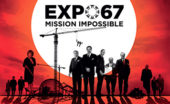Johannah Bernstein post: "eternally proud of my father’s extraordinary aeronautical engineering. legacy. here is a photo of the Canadair Water…
Lee Kuan Yew (1923-2015)
Written by Diana Thebaud Nicholson // March 30, 2015 // Asia // Comments Off on Lee Kuan Yew (1923-2015)
The Lee Kuan Yew Conundrum
Singapore’s late leader governed undemocratically but effectively. Which raises a question: What is the ultimate purpose of government?
(The Atlantic) To Western ears, the claim that an autocratic state can govern more effectively than a democratic one sounds heretical. History offers few examples of benevolent dictatorships that delivered the goods—or stayed benevolent for long. But in the case of Singapore, it is hard to deny that the nation Lee built has for five decades produced more wealth per capita, more health, and more security for ordinary citizens than any of his competitors.
Thus Lee Kuan Yew leaves students and practitioners of government with a challenge. If Churchill was right in his judgment that democracy is the worst form of government except for all the others, what about Singapore?
A Conversation with Lee Kuan Yew
By Fareed Zakaria
(Foreign Affairs) Lee managed [the] miraculous transformation in Singapore’s economy while maintaining tight political control over the country; Singapore’s government can best be described as a “soft” authoritarian regime, and at times it has not been so soft. He was prime minister of Singapore from its independence in 1959 (it became part of a federation with Malaysia in 1963 but was expelled in 1965) until 1990, when he allowed his deputy to succeed him. He is now “Senior Minister” and still commands enormous influence and power in the country. Since his retirement, Lee has embarked on another career of sorts as a world-class pundit, speaking his mind with impolitic frankness. And what is often on his mind is American-style democracy and its perils. He travels often to East Asian capitals from Beijing to Hanoi to Manila dispensing advice on how to achieve economic growth while retaining political stability and control. It is a formula that the governing elites of these countries are anxious to learn. (March|April 1994)
Grateful Singapore gives Lee Kuan Yew a hero’s funeral
(AFP) – More than 100,000 people lined Singapore’s streets to bid farewell to its founding father Lee Kuan Yew on Sunday, officials said as a week of mourning ended in the city-state he led to prosperity.
Torrential rain soaked the crowds as howitzers fired a 21-gun salute to the country’s first prime minister and jet fighters screamed across the sky in a grand farewell normally reserved for a head of state.
Officials said 454,687 people — in a nation with just 3.34 million citizens — had paid their last respects to Lee, 91, before his wake ended in parliament on Saturday.
People chanting Lee’s name wept openly, waved miniature flags and threw flowers on the street as the motorcade drove through districts associated with his 60-year political career. (BBC) Lee Kuan Yew: Singapore holds funeral procession

25 March
Lee Kuan Yew: Thousands queue to view founder lying in state
His body was moved by gun carriage on Wednesday morning from his official residence and through the city.
Singapore is observing a week of mourning ahead of Sunday’s funeral.
 Remembering Lee Kuan Yew: Our chief diplomat to the world
Remembering Lee Kuan Yew: Our chief diplomat to the world
By Ambassador-at-large Tommy Koh, 77, international lawyer, diplomat and former law faculty dean
(Straits Times) Mr Lee Kuan Yew was the most famous Singaporean in the world. For nearly half a century, he personified Singapore to the world. During his long tenure as Prime Minister (of independent Singapore), from 1965 to 1990, he was the principal architect of Singapore’s foreign policy.
Later, as senior minister and minister mentor, he continued to give his successors valuable advice on our external relations. It would not be wrong to say that he served as our chief diplomat to the world.
Singapore is a very small country. However, it enjoys a role and influence in the world not enjoyed by other countries of similar size. A British newspaper once wrote that Singapore punches above its weight. This is due to three factors: our record of domestic achievements, our skilful diplomacy and the Lee Kuan Yew factor.
Why was Mr Lee so greatly admired by foreign leaders? Because of his intellectual brilliance, his power of analysis and judgment, his eloquence and charisma, and his willingness to share his candid and disinterested views. His longevity also gave him an advantage as he evolved from being the brilliant Prime Minister of Singapore to being a wise elder statesman.
24 March
Lee Kuan Yew (1923-2015)
(Real Clear Politics) [The] remarkable transformation of Singapore took place under the authoritarian rule of Lee Kuan Yew for two decades as prime minister. And it happened despite some very serious handicaps that led to chaos and self-destruction in other countries. …
At a time when other Third World countries were setting up government-controlled economies and blaming their poverty on “exploitation” by more advanced industrial nations, Lee Kuan Yew promoted a market economy, welcomed foreign investments, and made Singapore’s children learn English, to maximize the benefits from Singapore’s position as a major port for international commerce.
Singapore’s schools also taught the separate native languages of its Chinese, Malay and Indian Tamil peoples. But everyone had to learn English, because it was the language of international commerce, on which the country’s economic prosperity depended.
In short, Lee Kuan Yew was pragmatic, rather than ideological. Many observers saw a contradiction between Singapore’s free markets and its lack of democracy. But its long-serving prime minister did not deem its people ready for democracy. Instead, he offered a decent government with much less corruption than in other countries in that region of the world.
How Lee Kuan Yew engineered Singapore’s economic miracle
(BBC) At one degree north of the equator, tropical Singapore has become a hotspot known for its efficient infrastructure, rooftop bars, chilli crab, and host city to the only night race on the Formula 1 racing calendar.
Often dubbed as the “Monaco of the East”, the red dot has beaten a path to steady economic progress and prosperity since the 1970s.
Much of the city’s success can be attributed to the vision of one man – Lee Kuan Yew, Singapore’s first prime minister who died this week. He was in office from 1959 to 1990.
The tenure made him the world’s longest-serving prime minister in history. Singapore broke away from neighbouring Malaysia and gained independence in 1965.
About half a century ago, Singapore was an island without any natural resources to call its own.
Since then, it has pulled off a 360-degree transformation – boasting two casino-integrated resorts and an airport that has frequently topped the “world’s best” list.
In addition, the central business district is crowded with skyscrapers that rival neighbouring Hong Kong and mid-town Manhattan in far-flung New York.
Mr Lee was not one to shy away from his achievements for Singapore. The second volume of his published memoirs carries the title, From Third World to First: The Singapore Story: 1965-2000.
To help sum up his economic triumphs for the city state, several experts shared their views on Lee Kuan Yew’s economic legacies for Singapore. …
From a Nepalese friend – Lee Kuan Yew and the Gurkhas
“When Lee became perforce the first Prime Minister of Singapore, which was unilaterally divorced from Malaya/Malaysia and rife anew with ethnic and political tensions in the nascent city republic, the new leader chose to induct and employ the martial ethnics from Nepal as riot police force and crowd controllers to quell the increasing disturbances caused by the infant nation’s main mutually squabbling groups – Malays, Chinese, and to some extent Indians – violently promoting their vested political and communal interests. To Yew, the Gurkhas of Nepal were not merely the bravest fighters in war and most valorous soldiers in peacetime; they were also most reputedly impartial and full of fair play because they were devoid of fanaticism of any provocation, and not taken to committing any war crimes in their long history of martial engagements. Above all, as Lee had already observed, they were apolitical and thus free of human prejudices of any color, including political frailties.”
“Thus was born the legend and institution of the Singapore Police Force, manned mainly by Nepal’s Gurkhas, on the express orders of Lee Kuan Yew when he became Singapore’s reluctant and weeping leader, and his decision has been in place to this day. The reasons are most obvious: A major share of the peace and prosperity of Singapore today from a derelict swampy marshland and war-ravaged and internally divisive post-War island republic to a glittering metropolis of world standards and clouts goes in no small measures to the Singapore Gurkha Police”. – (Adapted from : Gurkhas at large in Asia – PETER J KARTHAK)
What Lee Kuan Yew got wrong about Asia
By Ishaan Tharoor
(WaPost) The eulogies to Lee Kuan Yew, founding father of the modern city-state of Singapore, are flooding in for good reason. Few world leaders stood astride as grand a sweep of history as Lee or represent as much to their nation as he did. Later this year, Singapore will mark its 50th anniversary of full independence — a half-century defined by Lee’s rule and vision.
… there will always be one shadow hanging over Lee’s incredible legacy: that of his views on democracy, and the draconian methods his government sometimes deployed to stifle it. Under Lee, Singapore was governed as a virtual one-party state. Freedom of speech, despite slow reforms, was strictly curtailed. Intense libel laws led to the bankrupting and marginalization of opposition politicians.
Lee, erudite and articulate, was outspoken in his ambivalence toward democracy as a political system. “The exuberance of democracy leads to undisciplined and disorderly conditions which are inimical to development,” he is quoted as saying, with trademark pragmatism. “The ultimate test of the value of a political system is whether it helps that society to establish conditions which improve the standard of living for the majority of its people.”
Under Lee’s stewardship, Singapore became a model of economic growth and efficiency, whose blueprint for success was celebrated throughout the region. It was an unabashed nanny state led by supposedly apolitical technocrats. Deng Xiaoping’s 1978 trip to Singapore is believed to have opened the communist Chinese leader’s eyes to the benefits of a market economy in an authoritarian context. …
“I don’t think there is an Asian model as such,” Lee said in an 1994 interview with Fareed Zakaria that was published in Foreign Affairs. “But Asian societies are unlike Western ones.” Like Mahathir, he argued that there were hard and clear differences between “Eastern” and “Western” cultures: In the former, the individual matters less than in the latter, and, as a consequence, in the former, human rights matter less than the need for the security of the collective and economic growth.
This argument finds its backers in Asia’s authoritarian countries, but it has been widely panned, as well. More than 60 percent of the world’s population lives in Asia, and to imply that each and every Asian is somehow bound by a shared system of values is utterly preposterous. The fact that some of East Asia’s most advanced economies — Taiwan, South Korea, and Japan — also are healthy, battle-tested democracies suggests that societies steeped in Confucianism can happily accommodate more liberal, “modern” forms of politics.
Others, including Indian academic and Nobel-winning economist Amartya Sen, contend that traditions of debate and argument, as well as the belief in universal values, are as inherent to Asian cultures as they are to the West. To deny that is to provide a fig leaf for authoritarianism.
“Those who wish to deny us certain political rights try to convince us that these are not Asian values,” said Aung San Suu Kyi, the former Burmese political prisoner and a Nobel laureate. “In our struggle for democracy and human rights, we would like greater support from our fellow Asians.
Lee Kuan Yew’s Legacy: The Singapore Model of Clean Governance
By Pranay Gupte
(World Post) … with [the] demise [of Lee Kuan Yew], modern Asia has lost all of its postwar political wizards, men and women who carved entire countries from the clangor of colonial rule or from disputes with neighbors.
They were men and women who fought for independence, often at grave risk to themselves. They gave shape to their respective polities. They imprinted their special stamp of governance — democratic or dictatorial — on the nations they helped create.
They attracted the attention of the world’s superpowers to the possibilities of military alliances and market development. After all, as the United Nations notes, Asia is the world’s most populous continent, with its 4.3 billion inhabitants accounting for 60 percent of the world population of more than seven billion.
They are all gone now, felled by old age or assassins’ bullets: India’s Mahatma Gandhi, Jawaharlal Nehru and his daughter Indira Gandhi; China’s Mao Zedong and Deng Xiaoping; Indonesia’s Soekarno and Suharto; Sri Lanka’s Solomon and his wife Sirimavo Bandaranaike, and Junius Richard Jayewardene; Pakistan’s Mohammed Ali Jinnah; Bangladesh’s Sheikh Mujibur Rahman; and Malaysia’s Tunku Abdul Rahman.
Each was a political titan, of course. But Lee Kuan Yew was arguably the only one of this galaxy of giants who lived to see his nation transformed from a third world country into one of the world’s wealthiest one[s].”
Most important in this fine eulogy, we believe,”is Harry Lee’s emphasis on a society with 100 percent literacy. And that emphasis also led to broadening the notion of what many Singaporeans called the “literacy of governance.”
Lee Kuan Yew, Singapore’s Founding Prime Minister, Dead At 91: Prime Minister’s Office
Lee Kuan Yew, Singapore’s first prime minister, died Monday, according to a statement from the prime minister’s office. He was 91.
The news was announced in a statement from the office of Prime Minister Lee Hsien Loong, son of the former prime Minister. The statement was also shared via the prime minister’s official Twitter account, and stated that “Mr Lee passed away peacefully at the Singapore General Hospital today at 3.18 am.”
(BBC) Lee Kuan Yew, the statesman who transformed Singapore from a small port city into a wealthy global hub, has died at the age of 91.
The city-state’s prime minister for 31 years, he was widely respected as the architect of Singapore’s prosperity.



